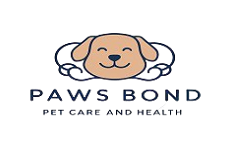It can be a little confusing to add new foods to your dog’s diet, particularly if they’re unusual choices like black rice. The nutrient-dense whole grain black rice, sometimes referred to as forbidden rice, is becoming more and more well-liked in diets due to its many health advantages. But what about our animal friends? In moderation, dogs can actually consume black rice. With its fiber, vitamin, and mineral content, this unusual rice variety can provide some nutritious value to your dog’s diet. But it’s important to cook black rice correctly and feed it unseasoned, without any extra ingredients or seasonings that could be bad for your dog. Furthermore, it’s critical to keep in mind that black rice should supplement rather than completely replace your dog’s usual, well-balanced diet. As usual,
What is black rice?
A variety of whole grain rice distinguished by its eye-catching deep black color is called black rice, sometimes referred to as forbidden rice. Its dark color is derived from pigments known as anthocyanin’s, which have a number of health advantages. When cooked, black rice has a chewy texture and a flavor that is slightly sweet and nutty. Black rice is regarded as being extremely nutrient-dense and rich in fiber, vitamins, minerals, and antioxidants. Historically valued in Asian societies for its uniqueness and medicinal qualities, it has grown in popularity all over the world. It can be used in a wide range of culinary preparations, including sushi and rice pudding as well as savory meals like pilafs and stir-fries.
Is black rice okay for dogs?
In general, dogs can safely eat black rice in moderation. Adding fiber, vitamins, minerals, and antioxidants to their diet can make it a nutrient-dense addition. But it’s imperative to cook black rice straight, without any other additives or seasonings that can be toxic to dogs. Furthermore, it ought to supplement rather than completely replace their regular, well-balanced diet. Black rice should be introduced gradually, just like any other new meal, and you should keep an eye out for any negative reactions in your dog. It is advised to speak with your veterinarian before adding black rice to your dog’s diet to be sure it is appropriate for their particular needs.
HEALTH BENEFITS OF BLACK RICE FOR DOGS
Caters to sight
“Caters to sight” implies a customized strategy or offering to successfully satisfy visual requirements or preferences. This idea is applicable to a wide range of contexts and includes settings, offerings, or goods that are thoughtfully created with attention to appeal, clarity, and visual appeal. Within the context of hospitality, it may refer to dishes that are carefully prepared to please the senses. It could refer to user interfaces designed for smooth navigation and visually engaging content in digital environments. Furthermore, the phrase emphasizes a dedication to guaranteeing that visual components significantly improve overall contentment and involvement, demonstrating a careful approach to presentation and design.
Great source of anthocyanin’s
Anything high in this specific class of antioxidant is said to as a “great source of anthocyanins.” The pigments called anthocyanins are what give many fruits, vegetables, and cereals their vivid hues. Foods high in anthocyanins, like black rice, blueberries, and blackberries, provide many health advantages. These antioxidants have been connected to heart health improvements, inflammation reduction, and cognitive function enhancement. Eating foods rich in anthocyanins may also help to maintain eye health and encourage aging in a healthy way. Including such nutrient-dense foods in your diet can improve your general health and possibly help prevent some chronic diseases.
Source of protein and iron
Iron and protein sources are necessary for preserving general health and wellbeing. Lean meats like chicken, turkey, and beef as well as fish like salmon and tuna are foods high in both nutrients. Additionally great sources are plant-based foods such quinoa, lentils, beans, and tofu. Protein is essential for immune system support, tissue growth and repair, and energy production. Iron is essential for red blood cell function and oxygen transportation throughout the body. Including a range of foods high in protein and iron in your diet will help you achieve maximum health and meet your nutritional needs.
Weight loss & weight maintenance
A healthy lifestyle must include both weight loss and weight maintenance. The goal of weight loss is to reduce extra body fat and reach a healthier weight. This is frequently accomplished by combining dietary adjustments, increased physical activity, and lifestyle changes. However, after a healthy weight has been reached, the goal of weight maintenance is to maintain it. This is usually accomplished by continuing to follow a balanced diet, getting regular exercise, and leading an intentional life. Since maintaining a healthy weight can help lower the risk of chronic diseases including obesity, heart disease, diabetes, and some malignancies, both weight loss and weight maintenance are essential for general health.
Improves digestive tract
Enhancing the digestive system is essential for general health and wellness. In addition to encouraging regular bowel movements and preventing digestive problems like constipation, bloating, and indigestion, a healthy digestive system guarantees effective digestion and nutrition absorption. Fiber-rich foods, such as fruits, vegetables, whole grains, and legumes, can boost the growth of good gut bacteria and encourage bowel regularity, both of which can assist enhance digestive health. Furthermore, leading a healthy lifestyle that includes frequent physical activity, stress management, and staying hydrated are crucial for gut health. Putting gut health first can benefit immune system performance, nutrient absorption, and general health.Top of Form
A great deal of antioxidants
A significant antioxidant content indicates a high concentration of substances that protect the body from oxidative damage and promote general well-being. Rich in different fruits, vegetables, nuts, and seeds, antioxidants are essential for combating dangerous free radicals that can damage cells and lead to long-term illnesses like cancer, heart disease, and aging-related disorders. Eating foods rich in antioxidants, such as dark chocolate, kale, spinach, and blueberries, can help shield the body from inflammation and oxidative damage, extending life and vitality. To fully benefit from the many health advantages of antioxidant-rich foods, it is essential to include a wide variety of them in your diet.
Gluten-free
Foods containing gluten, a protein present in wheat, barley, rye, and their derivatives, are prohibited in a gluten-free diet. Eliminating gluten is crucial for people with wheat allergies, celiac disease, or sensitivity in order to avoid negative health impacts. Naturally gluten-free grains including rice, corn, quinoa, and millet as well as gluten-free versions of baked goods, pasta, and bread produced with alternative flours such tapioca, almond, or coconut flour are examples of gluten-free foods. It’s important to carefully read labels when following a gluten-free diet and to prevent cross-contamination when preparing meals. While required for some, a gluten-free diet may be chosen by others due to personal preference or perceived health benefits.
FULL OF NUTRITION
A food or dietary option that is “full of nutrition” is one that is high in vital nutrients required for general health and wellbeing. These meals usually provide a wide range of macronutrients, vitamins, minerals, and antioxidants that are essential for maintaining body processes and fostering vitality. Fruits, vegetables, whole grains, lean meats, nuts, seeds, and legumes are examples of foods high in nutrients. Numerous health advantages can be derived from these meals, such as stronger immunity, more vitality, better digestion, and a lower chance of developing chronic illnesses including diabetes, heart disease, and some types of cancer. A balanced diet that includes a wide range of nutrient-rich foods is essential for reaching optimal health and vigor.
How can dogs eat black rice?
Black rice is OK for dogs to eat in moderation as part of a balanced diet. Make sure your dog is eating basic, well-cooked black rice without any other substances, oils, or flavors that could be detrimental. Gradually add black rice to your dog’s food and keep an eye out for any negative reactions. Although it can provide dietary advantages including fiber, vitamins, and minerals, black rice shouldn’t take the place of their regular dog food. Before adding black rice to your dog’s diet, speak with your veterinarian to be sure it is appropriate for their specific dietary demands and health requirements.
What happens when dogs eat too much black rice?
Dogs that eat too much black rice may become irritated with their digestive systems and have diarrhea, vomiting, or stomach pain. Like other grains, black rice contains fiber, which some dogs may find difficult to digest in big amounts, which can cause digestive problems. Furthermore, consuming too much black rice could lead to a nutritional imbalance because it belongs in a balanced meal plan rather than as the main source of sustenance. It’s critical to keep an eye on your dog’s portion sizes and total nutritional intake in order to prevent black rice overconsumption and to protect their health and wellbeing. It is best to speak with a veterinarian if you experience any negative side effects.
WHICH INGREDIENT IS HARMFUL IN BLACK RICE?
Black rice alone contains no elements that are hazardous by nature. However, if certain aspects of eating black rice are not carefully managed, they may put dogs at risk. For instance, seasonings or additions like salt, spices, or oils that are frequently used to prepare black rice for human use may be toxic to dogs if they consume considerable amounts of them. Furthermore, dogs may be harmed by black rice if it becomes contaminated with mold or toxins during manufacturing or storage. For this reason, it’s crucial to make sure that black rice given to dogs is unadulterated, cooked to perfection, and devoid of any potentially dangerous ingredients.
Can any black rice ingredient hurt dogs?
While black rice per se is safe for dogs to eat, some of the typical components used to make black rice dishes for humans can be dangerous to dogs if consumed in high amounts. Dogs may be harmed by additions such salt, spices, oils, or flavorings that are frequently used to improve the flavor of foods made with black rice. The health of canines may also be at risk if the black rice is tainted with chemicals or mold. In order to prevent any health concerns, it is crucial to serve black rice to dogs in moderation, simply, and without any additional additives or toxins.
Can dogs eat black rice uncooked?
Giving raw black rice to dogs is not advised. Raw black rice, like other grains, can be difficult for dogs to digest and can disturb their digestive systems, resulting in diarrhea, bloating, or pain in the stomach. To break down the starches in black rice and make it simpler for dogs to digest, it must be cooked correctly. Furthermore, there’s a greater chance that raw black rice contains toxins or dangerous microorganisms that could be hazardous to a dog’s health. For this reason, it’s important to make sure black rice is cooked all the way through before giving it to dogs in order to reduce the possibility of stomach problems and to guarantee their wellbeing.
Is red rice good for dogs?
Similar to other types of rice, red rice can be given to dogs in moderation as part of a healthy diet. Whole grains like red rice are rich in fiber, vitamins, and minerals, all of which are vital for a dog’s general health and wellbeing. To guarantee maximum digestibility, red rice must be cooked all the way through before giving it to dogs. Furthermore, red rice ought to be offered unflavored, devoid of any other substances or seasonings that can be dangerous for dogs. As usual, it’s best to speak with a veterinarian before adding any new items to a dog’s diet.
Final Thoughts
Moderation and careful preparation are essential when it comes to giving dogs any kind of rice, even black rice. While black rice by itself is safe for dogs to eat and may offer certain nutritional advantages, it should be prepared thoroughly and offered plain to maximize digestion and reduce the possibility of gastrointestinal distress. When making black rice for dogs, it’s also critical to keep out any dangerous flavors, additions, or pollutants. Consult a veterinarian before adding any new food to your dog’s diet to be sure it meets all of their specific nutritional demands and health requirements.









